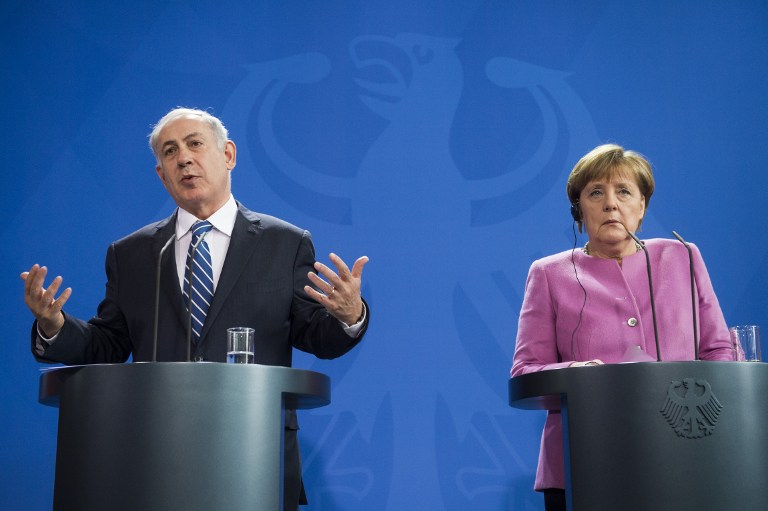
Welcome to 'Unraveling the Basics: 12 Notable Political Ideologies Spanning Across the Globe.'
In this thought-provoking article, we delve into the fundamental principles and characteristics of twelve prominent political ideologies. These ideologies include liberalism, conservatism, socialism, nationalism, feminism, fascism, communism, capitalism, and populism.
Through an objective, analytical lens, we aim to provide an informative overview for an audience that values freedom.
Join us as we navigate the intricate web of global political ideologies, shedding light on their core values and implications.
Liberalism
Liberalism promotes individual freedoms and limited government intervention in economic and social affairs. It is an ideology that places a strong emphasis on protecting and upholding individual rights, such as freedom of speech, religion, and the right to own property.
The core belief of liberalism is that every individual deserves equal opportunities and treatment under the law, regardless of their background or social status. Economic equality is also a key aspect of liberalism, as it seeks to ensure that all individuals have access to the same opportunities for economic success, without being hindered by discriminatory practices or unfair distribution of resources.
Liberalism aims to strike a balance between individual freedom and government intervention, with the goal of creating a society that maximizes individual liberties while maintaining social order and cohesion.

Conservatism
Conservatism is a political ideology characterized by a commitment to traditional values and institutions, limited government intervention, and a cautious approach to change. Key conservative principles include individual liberty, free markets, and a strong national defense.
Throughout history, there have been various global conservative movements. For example, the conservative parties in the United Kingdom, the Republican Party in the United States, and the Bharatiya Janata Party in India, each have their own specific interpretations and applications of conservative principles.
Key Conservative Principles
Conservative principles, frequently adhered to by individuals and political groups worldwide, encompass a set of values and beliefs rooted in tradition, limited government intervention, and the preservation of established institutions.
Traditional values are seen as the bedrock of society, with conservatives placing great importance on maintaining and upholding cultural norms, customs, and moral standards that have stood the test of time. They advocate for limited government, believing that excessive intervention can impede personal liberties and stifle individual initiative. Conservatives argue that a smaller government allows for more freedom and self-determination, enabling individuals to make their own choices and pursue their own goals.
Global Conservative Movements
As conservatism gains traction around the world, global conservative movements have emerged as influential forces shaping political landscapes. Conservative political parties, representing a range of ideological positions, have been instrumental in promoting conservative values and policies on a global scale. These movements prioritize traditional values, limited government intervention, and free-market principles.
They seek to uphold social and cultural norms, often advocating for the preservation of traditional institutions such as marriage and family. Global conservative movements also emphasize national sovereignty and the protection of borders, with a focus on strong immigration policies. They often stand against progressive ideologies and policies that they perceive as threatening traditional values and individual freedoms.
With their growing influence, these movements have significantly impacted political discourse and policymaking in many countries, shaping the direction of their respective societies.

Socialism
Socialism is a prominent political ideology that advocates for the collective ownership and control of the means of production. It aims to create an egalitarian society by promoting the redistribution of wealth and resources. Here are some key aspects of socialism:
- Collective ownership: Socialism proposes that the means of production, such as factories, land, and capital, should be owned and controlled by the community or the state rather than private individuals or corporations. This is seen as a way to eliminate exploitation and ensure that resources are used for the benefit of all.
- Redistribution of wealth: Socialists argue for a fairer distribution of wealth and resources, aiming to reduce income inequality and eliminate poverty. This involves progressive taxation, social welfare programs, and public services that provide equal opportunities and support for all members of society.
- Economic planning: Socialism promotes central planning of the economy, where the state or a democratically elected government determines the allocation of resources, production levels, and prices. The goal is to prioritize social needs and ensure that economic decisions are made in the best interest of the community.
- Social justice: Advocates of socialism emphasize the importance of social justice and equality. They believe that every individual should have access to basic necessities such as healthcare, education, and housing, regardless of their socioeconomic status. Socialism seeks to create a society where everyone has equal opportunities and can live with dignity.
- Criticism of capitalism: Socialism often criticizes the inherent flaws of capitalism, such as wealth concentration, exploitation of workers, and the prioritization of profit over social welfare. Socialists argue that capitalism perpetuates inequality and fails to address the needs of the most vulnerable members of society.
Nationalism
Continuing the examination of political ideologies, nationalism is a widely recognized ideology that emphasizes the interests and identity of a nation, often manifested through a strong sense of patriotism and loyalty.
Nationalism has played a significant role in shaping global politics, particularly in relation to globalization. On one hand, nationalism can promote protectionism and isolationism, hindering the process of globalization by limiting international cooperation and trade.
On the other hand, nationalism can also fuel a sense of national pride and unity, motivating countries to compete in the global arena and assert their influence.
Additionally, nationalism has been linked to the rise of right-wing political movements in recent years. These movements often emphasize national identity, immigration control, and protection of national values, appealing to those who feel marginalized or threatened by globalization.
The interplay between nationalism and globalization continues to shape the political landscape worldwide.
Feminism
Feminism is a political ideology that advocates for gender equality, challenging traditional gender roles and promoting inclusivity.

One of the key points of feminism is the recognition of intersectionality, which acknowledges that gender inequality intersects with other forms of discrimination such as race, class, and sexuality.
Furthermore, feminism has a rich history with notable movements such as first-wave feminism fighting for women's suffrage and second-wave feminism addressing issues like reproductive rights and workplace discrimination.
Gender Equality Movement
How does the Gender Equality Movement strive for equal rights and opportunities for all genders?
- Intersectionality in feminism: The Gender Equality Movement recognizes that gender inequality intersects with various other forms of discrimination, such as race, class, and sexuality.
- Fight against gender-based violence: The movement works to eradicate all forms of violence and harassment faced by individuals based on their gender.
- Equal pay and economic opportunities: Advocates for gender equality push for equal pay for equal work and strive to eliminate gender-based discrimination in the workplace.
- Political representation: The movement aims to increase the representation of women and marginalized genders in positions of power and decision-making roles.
- Challenging gender norms and stereotypes: By challenging traditional gender norms and stereotypes, the movement aims to create a society where individuals can express their gender identity freely without fear of discrimination.
The Gender Equality Movement, rooted in intersectionality in feminism, strives to achieve equal rights and opportunities for all genders. It fights against gender-based violence, advocates for equal pay and economic opportunities, promotes political representation, and challenges gender norms and stereotypes. Through these efforts, the movement aims to create a more inclusive and equitable society, where individuals can live freely and without discrimination.
Intersectionality and Inclusivity
The Gender Equality Movement's commitment to intersectionality and inclusivity extends to its approach to feminism, recognizing the interconnectedness of gender inequality with other forms of discrimination. Intersectionality acknowledges that individuals can experience multiple forms of oppression simultaneously, and advocates for addressing these intersecting oppressions collectively.
In the fight for gender equality, disability rights are an essential component. Disability intersects with gender, race, and class, impacting the experiences of disabled individuals, particularly women, who face unique challenges and discrimination.
Inclusivity is also crucial when considering indigenous rights. Indigenous women face intersecting inequalities due to their gender, ethnicity, and indigenous identity. Recognizing and addressing these intersections is vital for achieving true equality.

The Gender Equality Movement strives to create a feminist framework that acknowledges and addresses the complexity of discrimination and oppression faced by different individuals and communities.
Historical Feminist Movements
With roots dating back centuries, historical feminist movements have played a significant role in advocating for gender equality and challenging societal norms. These movements have paved the way for important advancements in women's rights and have sparked discussions on gender roles, reproductive rights, and workplace equality.
However, despite the progress made, there are still current challenges in feminism that need to be addressed. These include:
- Intersectionality: Recognizing and addressing the unique experiences and struggles faced by women of different races, classes, sexual orientations, and abilities.
- Gender-based violence: Combating violence against women, including domestic violence, sexual assault, and harassment.
- Economic empowerment: Ensuring equal pay and opportunities for women in the workforce.
- Reproductive rights: Advocating for access to safe and legal abortion, contraception, and comprehensive reproductive healthcare.
- Political representation: Increasing the number of women in leadership roles and decision-making positions.
These challenges highlight the ongoing fight for gender equality and the importance of continued activism and awareness.
Environmentalism
Environmentalism's core values prioritize the protection and preservation of the Earth's natural resources and ecosystems. It is an ideology that seeks to address the pressing environmental issues facing our planet, such as climate change, deforestation, and pollution.
Environmentalists advocate for eco-friendly policies that promote sustainable development and reduce our carbon footprint. They believe in the importance of conserving biodiversity and ensuring the well-being of future generations.
Climate change activism is a significant aspect of environmentalism, as it aims to raise awareness about the impacts of global warming and push for policy changes to mitigate its effects.

Environmentalists work towards creating a more sustainable and environmentally conscious society, promoting renewable energy sources, advocating for conservation efforts, and striving to strike a balance between economic development and environmental protection.
Anarchism
Anarchism is a political ideology that advocates for a society without a centralized state authority, envisioning a system based on voluntary cooperation and mutual aid among individuals.
One of the key points of anarchism is the belief in the possibility of a stateless society, where power and decision-making are decentralized and held by the people.
Another important aspect is the emphasis on individual freedom, with anarchists arguing that individuals should be able to live their lives without interference from oppressive institutions or hierarchies.
Stateless Society Possibility
The possibility of a stateless society has long been debated among political theorists and scholars worldwide. Anarchism, as a political ideology, advocates for the absence of a centralized state authority and the establishment of a society based on voluntary cooperation and self-governance. While the concept of a stateless society carries implications of individual freedom and autonomy, achieving such a society presents several challenges.
- Lack of centralized authority: In the absence of a state, decision-making processes and governance become decentralized, making it difficult to address collective issues and maintain order.
- Security and defense: Without a centralized authority, the responsibility of ensuring security and defense falls on individual communities, which can lead to potential vulnerabilities and conflicts.
- Economic organization: In a stateless society, economic systems may face challenges in terms of resource allocation, regulation, and maintaining social welfare.
- Social cohesion: The absence of a state can pose challenges in terms of establishing and maintaining social cohesion, as cooperation and consensus-building become crucial.
- Transition and resistance: Transitioning from a state-governed society to a stateless one can be met with resistance, as individuals may be reluctant to relinquish existing power structures and hierarchies.
While the idea of a stateless society offers the promise of freedom and autonomy, addressing these challenges remains essential for its successful realization.
Role of Individual Freedom
Within the ideology of anarchism, individual freedom plays a pivotal role in shaping the desired societal structure. Anarchism advocates for the absence of a centralized state authority, aiming to create a society where individuals have the utmost freedom to exercise their individual rights and personal autonomy.

Anarchists argue that the state's existence inherently restricts individual freedom, as it imposes laws and regulations that infringe upon personal liberties. Instead, anarchists advocate for voluntary cooperation and mutual aid as the basis for societal organization. They believe that individuals should have the freedom to make their own choices, without interference from external authorities.
Anarchism promotes a society where power is decentralized, allowing individuals to exercise their autonomy and live according to their own principles and values. It emphasizes the importance of individual rights and personal autonomy as the foundation for a truly free society.
Libertarianism
Libertarianism advocates for limited government intervention and maximized personal freedoms. It is a political ideology that places a strong emphasis on individual liberty and limited government power. Here are some key aspects of libertarianism:
- Non-aggression principle: Libertarians believe in the principle of non-aggression, which means that individuals should be free to act as long as they do not harm others or infringe upon their rights.
- Limited government: Libertarians argue for a minimal role of government in society, advocating for reduced government regulations and interventions in the economy and personal lives of individuals.
- Free markets: Libertarians strongly support free market capitalism, believing that voluntary exchanges between individuals lead to the most efficient allocation of resources and economic prosperity.
- Property rights: Libertarians place a high value on property rights, seeing them as essential for individual freedom and economic growth.
- Personal autonomy: Libertarianism promotes personal autonomy and individual sovereignty, allowing individuals to make their own choices and live their lives as they see fit, as long as they do not harm others.
Fascism
Continuing the discussion from the previous subtopic, another notable political ideology that spans across the globe is fascism.
Fascism emerged as a response to the social and economic turmoil in Europe following World War I. It gained prominence under leaders like Benito Mussolini in Italy and Adolf Hitler in Germany during the 20th century.
Fascism in World War II was characterized by dictatorial regimes that emphasized nationalism, authoritarianism, and the suppression of political dissent. These regimes sought to create a centralized state with strong leadership and control over all aspects of society.
The impact of fascism on society was profound, as it led to the erosion of individual liberties, the persecution of minority groups, and the promotion of militarism and aggressive expansionism. The atrocities committed under fascist regimes during World War II serve as a stark reminder of the dangers of this ideology.

Communism
Communism is a political ideology that advocates for the abolition of private property and the establishment of a classless society. It is rooted in the belief that society should be organized around the principles of equality and cooperation. Here are some key points to understand about communism:
- Class struggle: Communism views society as divided into two primary classes: the proletariat (working class) and the bourgeoisie (capitalist class). It argues that the bourgeoisie exploits the proletariat, leading to social inequality and conflict.
- Revolutionary socialism: Communism seeks to achieve its goals through revolutionary means, often involving the overthrow of capitalist systems. It believes that a proletarian revolution is necessary to establish a communist society.
- Collective ownership: Under communism, private property is abolished, and the means of production are collectively owned and controlled by the community or the state.
- Central planning: Communism favors central planning, with the state or a central authority directing economic decisions to ensure the equitable distribution of resources.
- Classless society: The ultimate goal of communism is to create a classless society where wealth and power are shared equally among all individuals.
Communism has been a significant force in shaping global politics and has had both positive and negative impacts throughout history.
Capitalism
Capitalism, an economic system based on the principles of private ownership and free market competition, has been a prominent force in shaping global economies and societies. It emphasizes the role of private enterprise and the pursuit of profit as the driving forces behind economic growth and development.
In a capitalist system, individuals are free to own and control the means of production, and market forces determine the allocation of resources and the prices of goods and services. This system encourages innovation, entrepreneurship, and competition, which can lead to economic prosperity and improved living standards.
However, critics argue that capitalism can also lead to income inequality and exploitation, as well as environmental degradation. Despite these criticisms, free market economics remain a popular choice for many nations seeking economic growth and individual freedom.
Populism
One notable political ideology spanning across the globe is populism. Populism refers to a political approach that emphasizes the interests and concerns of ordinary people, often positioning them against the elite or establishment. In recent years, there has been a significant rise of populism and the emergence of populist leaders in various countries. Here are five key aspects of populism:
- Anti-establishment rhetoric: Populist leaders often criticize the existing political system and claim to represent the voice of the people.
- Appeals to nationalism: Populism frequently involves tapping into nationalistic sentiments, emphasizing the importance of protecting national identity and sovereignty.
- Economic protectionism: Populist movements often advocate for policies that prioritize domestic industries and workers, sometimes at the expense of global trade.
- Simplistic solutions: Populist leaders tend to offer simple and straightforward solutions to complex societal problems, appealing to the frustrations of the general public.
- Polarization and division: Populist movements often thrive on creating a sense of 'us versus them,' fostering division and animosity between different groups in society.
The rise of populism can be attributed to various factors, including economic inequality, cultural anxiety, and a perceived disconnect between the political elite and ordinary citizens. As a result, populism continues to shape political landscapes around the world, challenging traditional political norms and institutions.

Frequently Asked Questions
How Do Political Ideologies Like Liberalism, Conservatism, Socialism, Etc., Impact the Economy of a Country?
Political ideologies such as liberalism, conservatism, and socialism can have significant impacts on a country's economy. They shape the role of government in economic policies and can influence income inequality through their different approaches to wealth distribution and market regulation.
What Are the Main Differences Between Feminism and Environmentalism?
Feminism and environmentalism are two distinct ideologies with different focuses. Feminism aims to achieve gender equality and address issues related to gender discrimination, while environmentalism is concerned with protecting the environment and promoting sustainable practices. However, there is an intersection between the two in the form of ecofeminism, which explores the connections between the oppression of women and the degradation of the environment. Intersectionality, a concept within feminism, recognizes the overlapping systems of oppression and how they intersect with gender, including environmental issues.
How Does Nationalism Influence International Relations and Global Cooperation?
Nationalism's impact on global conflict and the rise of protectionism cannot be overlooked. It influences international relations by promoting a sense of national pride and identity, often at the expense of global cooperation and unity.
What Are the Key Principles of Anarchism and How Does It Envision a Society Without a Centralized Government?
Anarchism principles revolve around the rejection of centralized government and the establishment of a society based on voluntary cooperation and mutual aid. Decentralized governance is seen as the key to achieving individual freedom and social equality.
How Does Populism Differ From Other Political Ideologies in Terms of Its Approach to Governance and Policies?
Populism differs from other political ideologies in its approach to governance and policies by prioritizing the needs and desires of the common people. However, its impact on democracy can be contentious, as populist movements often employ persuasive rhetoric to garner support.






